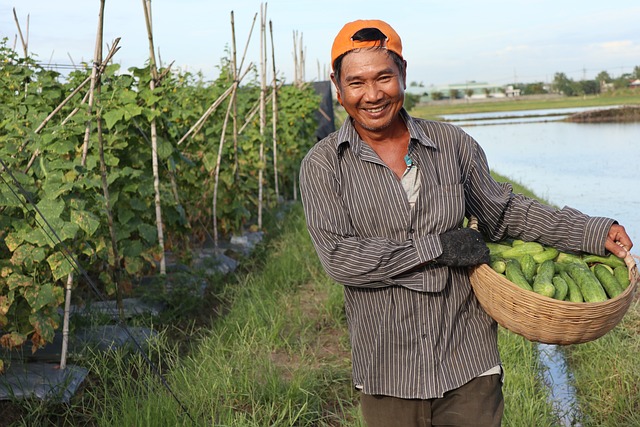What Does It Mean to Be Sustainable?
Understanding what it means to be sustainable is vital for guiding our actions and ensuring a balanced coexistence between nature, humans, and the world. Sustainability goes beyond simply adopting eco-friendly habits and spans over all levels of society, from individuals to businesses and governments. But what does it really mean to be sustainable? This question delves into the heart of how we live, produce, and consume in harmony with the planet and each other.
At its core, sustainability is about meeting the needs of the present without compromising the ability of future generations to meet their own needs. This definition, popularized by the United Nations’ Brundtland Commission in 1987, emphasizes the balance between three interconnected pillars: environmental protection, social equity, and economic viability.
Sustainability is about meeting the needs of the present without compromising the ability of future generations to meet their own needs.
The United Nations Brundtland Commission, 1987 Tweet
Areas of Sustainability

Environmental protection
Being environmentally sustainable means that our actions preserve the planet’s natural resources and ecosystems. This involves reducing pollution, conserving water and energy, protecting biodiversity, and minimizing waste. In practice, it might mean using renewable energy sources, adopting sustainable farming practices, or supporting conservation efforts.
Social sustainability
Social sustainability is about ensuring that all people, regardless of background, have access to basic needs and opportunities. It includes promoting human rights, labor rights, and fair working conditions. In a sustainable society, everyone has the opportunity to thrive, and resources are distributed fairly. This can manifest in practices like fair trade, supporting local communities, and ensuring access to education and healthcare.
Economic sustainability
Economic sustainability involves creating systems that are financially viable in the long term without depleting resources or harming social structures. This means developing business models that not only generate profit but also contribute positively to society and the environment. Circular economies, where products are reused and recycled, and businesses that prioritize ethical sourcing and corporate social responsibility are examples of economic sustainability.
What Makes Someone Sustainable?
To be sustainable means integrating these three pillars into daily life, business operations, and philosophy. Depending on if on an individual level or a systems level, sustainability and ethical living can be practiced in different ways.
Individual Sustainability
Conscious consumption
We can play a big part by choosing products that are eco-friendly, ethically made, and have minimal environmental impact. This includes reducing single-use plastics, buying local, and opting for sustainable fashion.
Energy conservation
This includes reducing energy use by embracing renewable energy, improving home insulation, using energy-efficient appliances, and cutting down on unnecessary consumption. We have gathered tips on how to start reducing energy consumption in our e-book for those ready to take their next step in sustainable living – click the fan icon or title to access it for free!
Waste reduction
Reduce, Reuse, Recycle. This means minimizing waste by repairing items, composting organic waste, and supporting recycling programs. Buying refills, opting for zero-waste options, and reusable items instead of throw-away materials are easy steps to reducing waste.
Sustainability in Businesses
Sustainable sourcing
Companies can ensure that their supply chains are ethical and environmentally friendly, sourcing materials that are renewable and responsibly managed. By prioritizing transparency and working with suppliers who adhere to sustainable practices, businesses can reduce their environmental footprint and support fair labor conditions.
Social and corporate responsibility
Beyond profit, businesses can contribute to social causes, such as supporting education, providing fair wages, and ensuring safe working conditions.
Green innovation
Creating products and services with a reduced environmental impact involves innovations like electric vehicles, zero-waste packaging, and energy-efficient technologies. These advancements help minimize ecological footprints while promoting sustainability and efficiency in various sectors.
To be sustainable is to live in a way that respects and preserves the delicate balance between our needs and the Earth’s ability to meet them. It’s about making choices that are conscious of their impact on the planet, society, and future generations. Whether at an individual, business, or governmental level, sustainability is a collective responsibility and a journey towards a more equitable, healthy, and prosperous world.
Feeling inspired and ready to explore more? Check out our growing collection of sustainable home, health, beauty, and clothing brands here, or level up your journey with 50+ free tips to simple sustainable living.



2 thoughts on “What Does It Mean to Be Sustainable? Definitions and Examples”
Thank you for a truly inspiring and educational website! I realise that even though I have thought of myself as a fairly ”enlightened”, conscious consumer, I am really a Beginner what comes to sustainable living. There is a lot more that I can do to become more sustainable in my everday life and your website helps to make the learning journey both easy and fun!
Thanks for your comment – it’s great to hear! Striving for perfection isn’t the important goal, but to simply be more conscious and aware in our everyday lives. That way we don’t only do good for the world, but we might even find a new appreciation for the little things in life.
Hope to see you around! :))
Ekotera